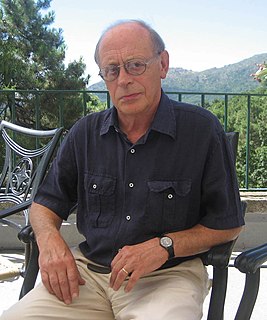A Quote by Justin Cartwright
My own interest in Kafka's letter came about when I was writing an article on Peter Ginz, the boy novelist held in Terezin, not far from Prague, and exterminated in Auschwitz by the Nazis. The Ginz family were from more or less the same milieu as the Kafkas.
Related Quotes
By the time Kafka was seven or eight years old, he already had a relatively dark view of the world derived from experiences in his own family. This told him that the world was organized in a strictly hierarchical manner and that those on the top were allowed to mete out punishment in any way they chose. They were entitled to leave those on the bottom uninformed about the rules to which they subscribed; they weren't even required to follow their own rules - this is how Kafka described it in his later Letter to My Father.
There was a sentence in your letter that struck me, “I wish I were far away from everything, I am the cause of all, and bring only sorrow to everybody, I alone have brought all this misery on myself and others.” These words struck me because that same feeling, just the same, not more nor less, is also on my conscience.
Kafka is one of my very favorite writers. Kafka's fictional world is already so complete that trying to follow in his steps is not just pointless, but quite risky, too. What I see myself doing, rather, is writing novels where, in my own way, I dismantle the fictional world of Kafka that itself dismantled the existing novelistic system.
I made a real specific decision when I came out of school and most artists were writing about home - if you were a woman, you were writing about being a woman - and I decided not to do that, write about what you know. That's not what I do. I went as far away from home as possible in terms of the development of my imagination.





































